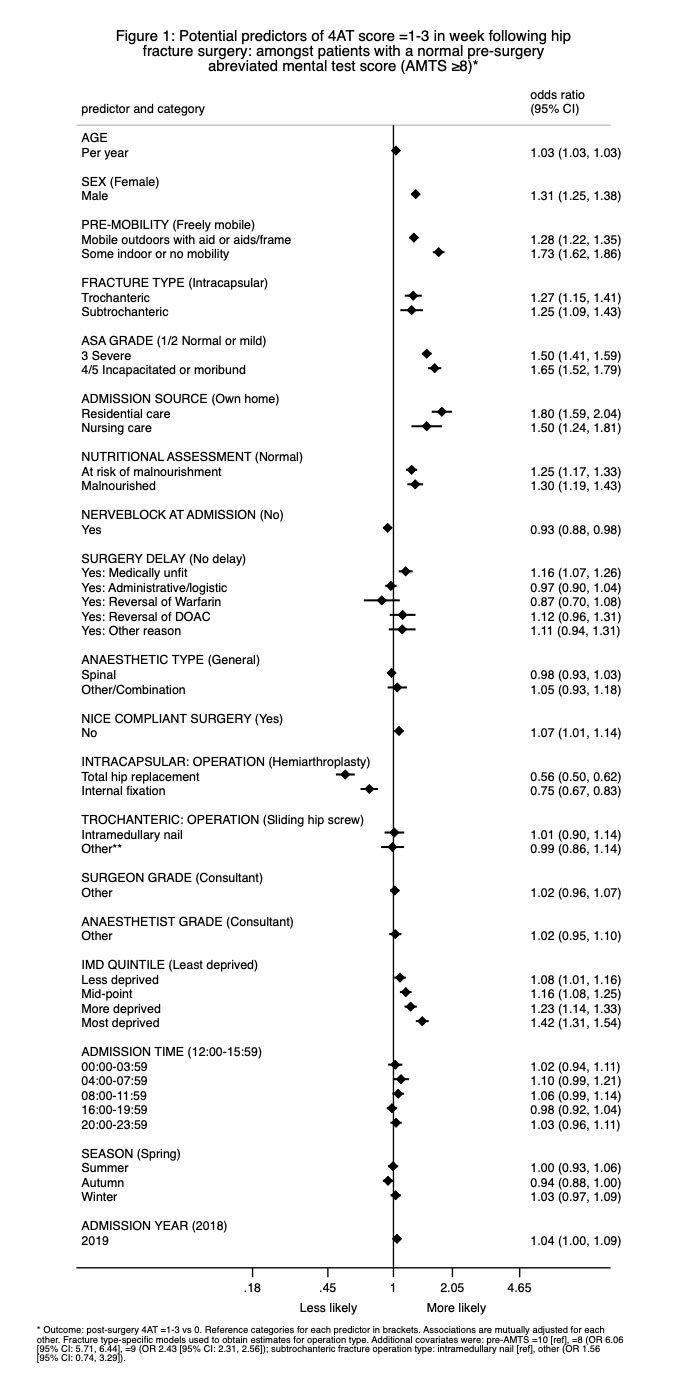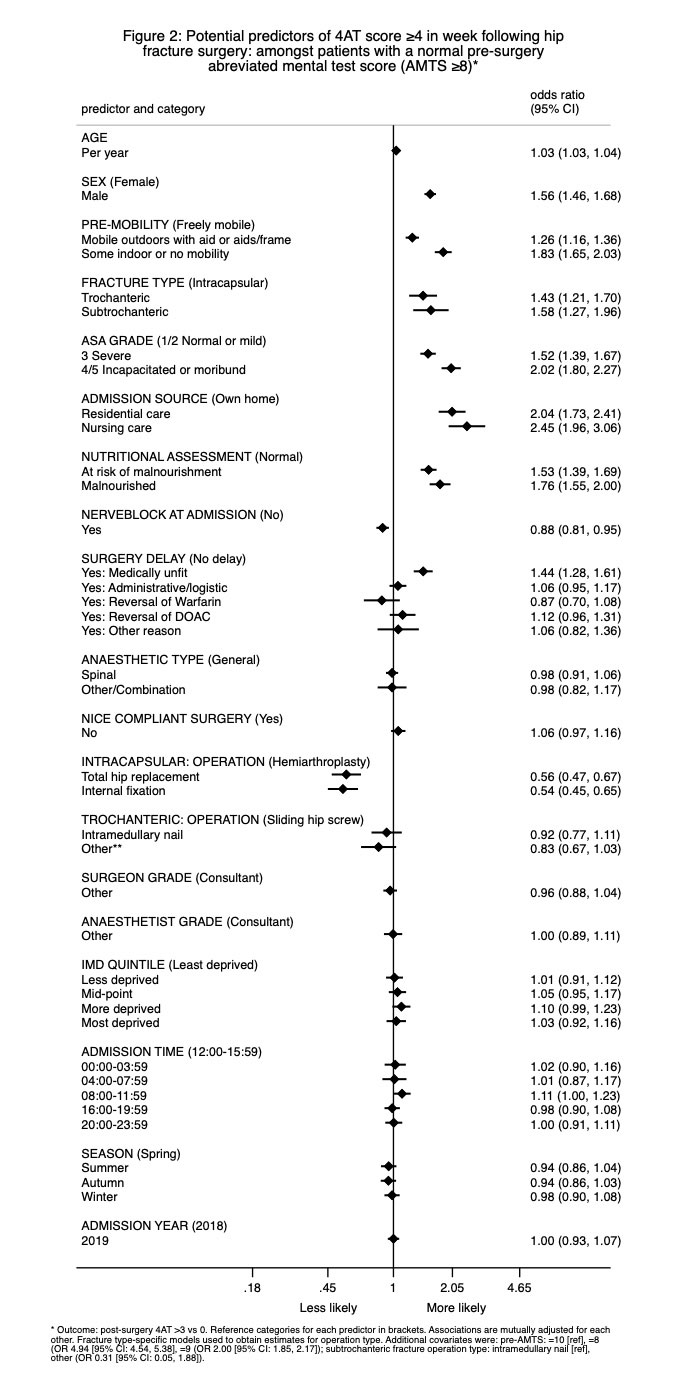Session Information
Date: Saturday, November 12, 2022
Title: Health Services Research Poster I: Lupus, RA, Spondyloarthritis and More
Session Type: Poster Session A
Session Time: 1:00PM-3:00PM
Background/Purpose: Post-operative delirium and cognitive impairment are common after hip fracture. We set out to identify risk factors and examine the association with returning home and recovery of mobility.
Methods: We used the United Kingdom National Hip Fracture Database (NHFD) clinical audit data for eligible patients with hip fracture in England (2018-2019); excluding those with abnormal cognition (abbreviated mental test score AMT< 8) on presentation. We used routine post-operative screening data for the 4A test (4AT) to identify those who became delirious or developed cognitive impairment in the week after surgery. Predictors of abnormal post-operative 4AT score were identified using random effects logistic regression modelling, accounting for clustering by hospital site. We examined associations between 4AT and return home and return to outdoor mobility at 120-days using similar regression modelling.
Results: Of 102,663 eligible hip fracture patients, 65,075 (63.4%) had a pre-operative AMTS ≥8 and were included in analyses. Mean age was 81.0 (S.D. 8.7) and 69.6% were female. A quarter developed an abnormal 4AT suggesting post-operative delirium or cognitive impairment. Multiple patient and service factors were predictive of an abnormal 4AT (Figures 1 & 2); use of post-admission nerve block was associated with lower risk, but socioeconomic deprivation or surgery that was not NICE compliant with higher risk. Patients with 4AT=1-3 were significantly less likely to return home (OR 0.59 [95% CI 0.54, 0.65]) or regain outdoor mobility (OR 0.64 [0.57 to 0.71]). This was even more marked in those with a 4AT≥4; OR 0.33 [0.29, 0.38] and OR 0.64 [0.54, 0.76] respectively.
Conclusion: Delirium and cognitive impairment after hip fracture surgery significantly reduce the likelihood of returning home or to outdoor mobility. More research is required to better understand the multiple modifiable risk factors that may help to prevent these complications.
To cite this abstract in AMA style:
Hawley S, Inman D, Gregson C, Whitehouse M, Johansen A, Judge A. Post-operative Delirium and Cognitive Impairment: An Analysis of Predictors and 120-day Outcomes in England Using the National Hip Fracture Database (NHFD) [abstract]. Arthritis Rheumatol. 2022; 74 (suppl 9). https://acrabstracts.org/abstract/post-operative-delirium-and-cognitive-impairment-an-analysis-of-predictors-and-120-day-outcomes-in-england-using-the-national-hip-fracture-database-nhfd/. Accessed .« Back to ACR Convergence 2022
ACR Meeting Abstracts - https://acrabstracts.org/abstract/post-operative-delirium-and-cognitive-impairment-an-analysis-of-predictors-and-120-day-outcomes-in-england-using-the-national-hip-fracture-database-nhfd/


